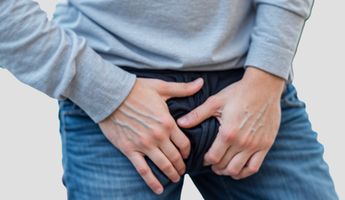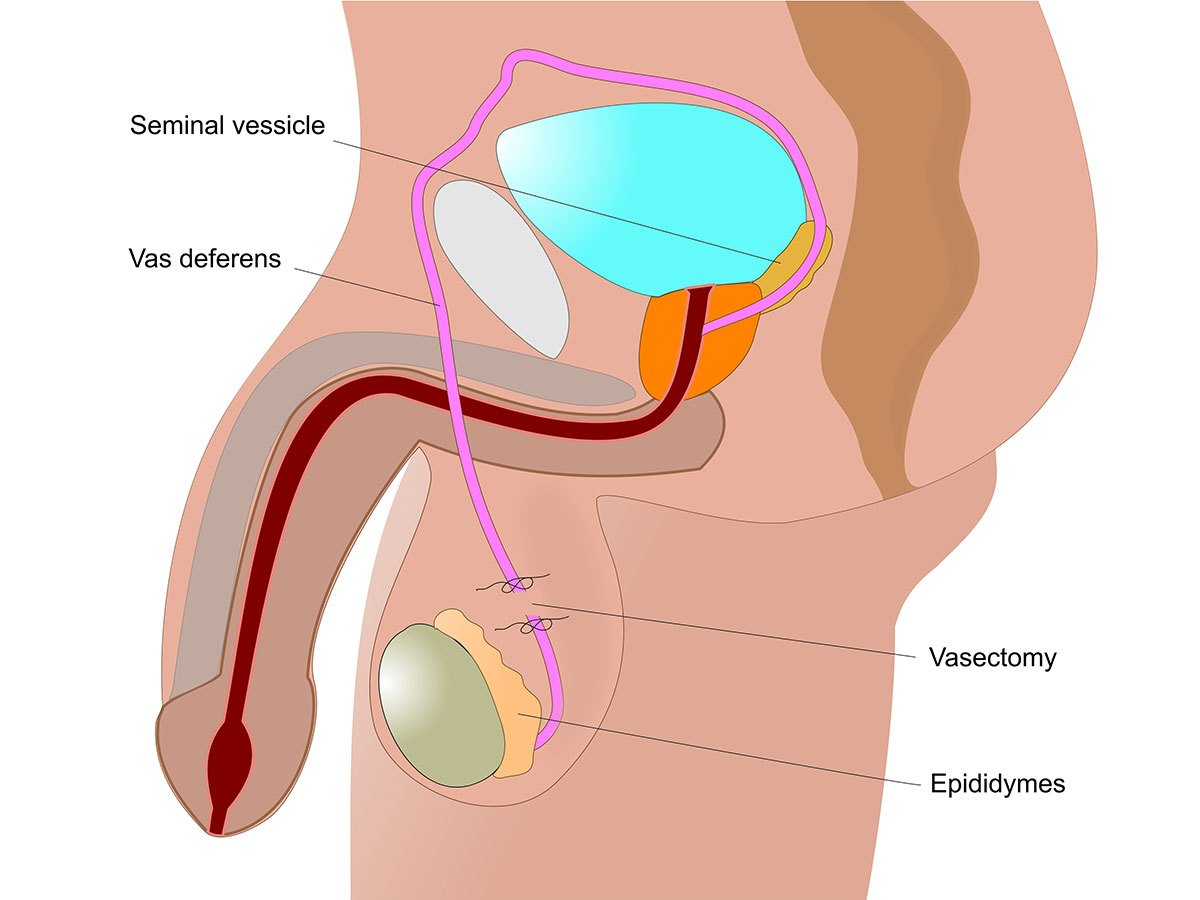Vasectomy in Nepal
Search and Compare the Best Clinics and Doctors at the Lowest Prices for Vasectomy in Nepal

Find the best clinics for Vasectomy in Nepal
No clinics available
Russian Federation offers the best prices Worldwide
Price: $ 275

- Home
- Nepal
WHY US?
At Medijump, we're making medical easy. You can search, compare, discuss, and book your medical all in one place. We open the door to the best medical providers worldwide, saving you time and energy along the way, and it's all for FREE, no hidden fees, and no price markups guaranteed. So what are you waiting for?

Free

Best Price

Widest Selection

Risk-Free
What you need to know about Vasectomy in Nepal

Vasectomy, sometimes referred to as male sterilization, is a form of birth control for men to prevent pregnancy. The procedure blocks the supply of sperm to the semen when men ejaculate. Men who undergo this procedure can still experience orgasm and ejaculate.
It acts as a form of permanent birth control, preventing sperm from reaching the semen, thus eliminating the chance of pregnancy.
What does a Vasectomy Procedure Involve?
Vasectomy is performed under local anesthetic, meaning that you will be awake but you will not feel anything. Your doctor will remove and seal the tubes (vas deferens) that carry sperm from your testicles. Once the tubes have been cut, your sperm cannot reach your semen or leave your body anymore.
How Long Should I Stay in Nepal for a Vasectomy Procedure?
You can leave the hospital on the same day of the procedure, but you will need to stay in Nepal for at least 2 to 4 days. During your stay, you will need to attend hospital check-ups. If your doctor does not use dissolving stitches, removal of stitches will take place during the check-up.
What's the Recovery Time for Vasectomy Procedures in Nepal?
Rest for at least 24 hours after the procedure and avoid physical activities, such as exercise and sexual intercourse, for around a week. You should be able to go back to work in 3-5 days.
What sort of Aftercare is Required for Vasectomy Procedures in Nepal?
There is no special diet you need to follow and do not have unprotected sex until you have ejaculated at least 15 to 20 times. Once you have had 15 to 20 ejaculations, you can undergo a follow-up test with your local doctor to examine if your semen is free of sperm.
What's the Success Rate of Vasectomy Procedures in Nepal?
Vasectomy is almost 100% effective. Unsuccessful vasectomy happens when the tubes re-join, but it is very rare. Risks and side effects are very uncommon, but if they do happen, they usually include infection, inflammation, bruising, and swelling.
Are there Alternatives to Vasectomy Procedures in Nepal?
There is currently no alternative for male sterilization that is as effective as a vasectomy. The current best alternative for men is to use a condom during sexual activities or to ask the female partner to use birth control.
What Should You Expect Before and After the Procedure
Before the procedure, you need protection to avoid unwanted pregnancy. After the procedure, you no longer need any form of protection as your semen is free of sperm. However, the procedure will not protect you from any sexually transmitted infections.
Whilst the information presented here has been accurately sourced and verified by a medical professional for its accuracy, it is still advised to consult with your doctor before pursuing a medical treatment at one of the listed medical providers
No Time?
Tell us what you're looking for and we'll reachout to the top clinics all at once
Enquire Now

Popular Procedures in Nepal
Prices Start From $500

Prices Start From $2,473

Prices Start From $683

Prices Start From $322

Recommended Medical Centers in Nepal for procedures similar to Vasectomy

- Interpreter services
- Translation service
- Religious facilities
- Medical records transfer
- Medical travel insurance
- Health insurance coordination
- TV in the room
- Safe in the room
- Phone in the room
- Private rooms for patients available

- Interpreter services
- Translation service
- Religious facilities
- Medical records transfer
- Medical travel insurance
- Health insurance coordination
- TV in the room
- Safe in the room
- Phone in the room
- Private rooms for patients available

- Interpreter services
- Translation service
- Religious facilities
- Medical records transfer
- Medical travel insurance
- Health insurance coordination
- TV in the room
- Safe in the room
- Phone in the room
- Private rooms for patients available
Vasectomy in and around Nepal
Introduction
Nepal is a country in South Asia, sandwiched between India and China. Home to the mighty Mount Everest, this incredible country has diverse landscapes, from the Himalayan Mountains in the north to the sprawling plains in the south. Towering mountains, charming hill villages, golden mountains, and jungle wildlife, Nepal is truly one of the world’s best travel destinations. Beyond its nature and culture, this country is also increasingly popular for its healthcare. With its affordable high-quality medical facilities, Nepal is considered to have immense potential for medical tourism, due to the availability of good infrastructure, highly trained specialists, modern medical equipment, and relatively cheaper medical treatment. In fact, it’s currently the fastest-growing segment of the country’s tourism. Medical tourists coming to Nepal are usually seeking exceptionally high medical treatment at competitive rates. Some of the most sought after procedures are dental treatments, cardiac services, and neurological treatments.
Popular Cities and Regions in Nepal
Kathmandu, the capital and largest city in Nepal, is historic, enticing, spiritual, and vibrant. One of the most famous attractions in the city is the old town, where tourists can find the most popular Tibetan pilgrimage site, the Kathesimbhu Stupa. Another top attraction is Kumari Bahal, which is the home of the Kumari, the girl who is selected to be the town’s living symbol of Devi. Tourists looking to relax in a more laid-back vibe usually go to Pokhara. Stretching along the shore of an idyllic lake, it offers spectacular scenery. It also boasts a thriving adventure-sports industry, from paragliding to paddle boats. Anyone who wants to experience an ancient way of life should visit Bhaktapur, which is filled with artisan weave cloths, amazing cuisine, and beautiful temples.
Transport in Nepal
The main international airport in Nepal is Tribhuvan International Airport, which serves flights to and from numerous cities in Asia, such as Delhi, Hong Kong, and Dubai. Getting around the country can be a challenge, but public transportation is available. Buses are affordable, however, they tend to be overloaded. Tourist buses are the best way to travel around as they are in good condition.
Visas in Nepal
Citizens of India do not need a visa to enter Nepal without restrictions. Citizens of almost all nations, including the US and all EU countries, can obtain a visa on arrival that is valid for up to 90 days. Only holders of passports from 12 countries, need to have a visa in advance.
Weather in Nepal
Nepal has five seasons. Spring starts in March until May, it offers pleasant weather that is not too cold nor too hot. Summer arrives in June and ends in August, bringing hot temperatures of around 28°C. Monsoon from June to September receives rain almost every day. Autumn and pre-winter bring sunny and pleasant weather, while winter can be very cold.
Additional Info
-
Local Currency: Nepali rupee (NPR) is the official currency. 1 USD converts to 115 NPR.
-
Money & Payments: ATMs are available in major cities, such as Kathmandu and Pokhara. Credit cards are accepted in major hotels and restaurants. Tipping is expected.
-
Local Language: The official language is Nepali. English is mainly spoken in tourism areas.
-
Local Culture and Religion: Hinduism and Buddhism coexist in Nepal peacefully. Islam, Kiratism, and Christianity are in the minority.
-
Public Holidays: Some of the most celebrated public holidays are Maha Shivaratri, Buddha Jayanti, Sambidhaan Diwas, and Bhaitika.
Popular Searches
- Plastic Surgery in Thailand
- Dental Implants in Thailand
- Hair Transplant in Thailand
- Breast Augmentation Thailand
- Gastric Sleeve in Thailand
- Gender Reassignment Surgery in Thailand
- Laser Hair Removal in Bangkok
- Botox in Bangkok
- Dermatology in Bangkok
- Breast Augmentation in Bangkok
- Coolsculpting in Bangkok
- Veneers in Turkey
- Hair Transplant in Turkey
- Rhinoplasty in Turkey
- Stem Cell Therapy in Mexico
- Rhinoplasty in Mexico
- Liposuction in Mexico
- Coolsculpting in Tijuana
- Rhinoplasty in Korea
- Scar Removal in Korea
- Gastric Sleeve in Turkey
- Bone Marrow Transplant in India
- Invisalign in Malaysia
- Plastic Surgery in the Dominican Republic
- Tummy Tuck in the Dominican Republic
- Plastic and Cosmetic Surgery in Poland
- Rhinoplasty in Poland
- Hair Implant in Poland
- Dental Implants in Poland
- IVF in Turkey